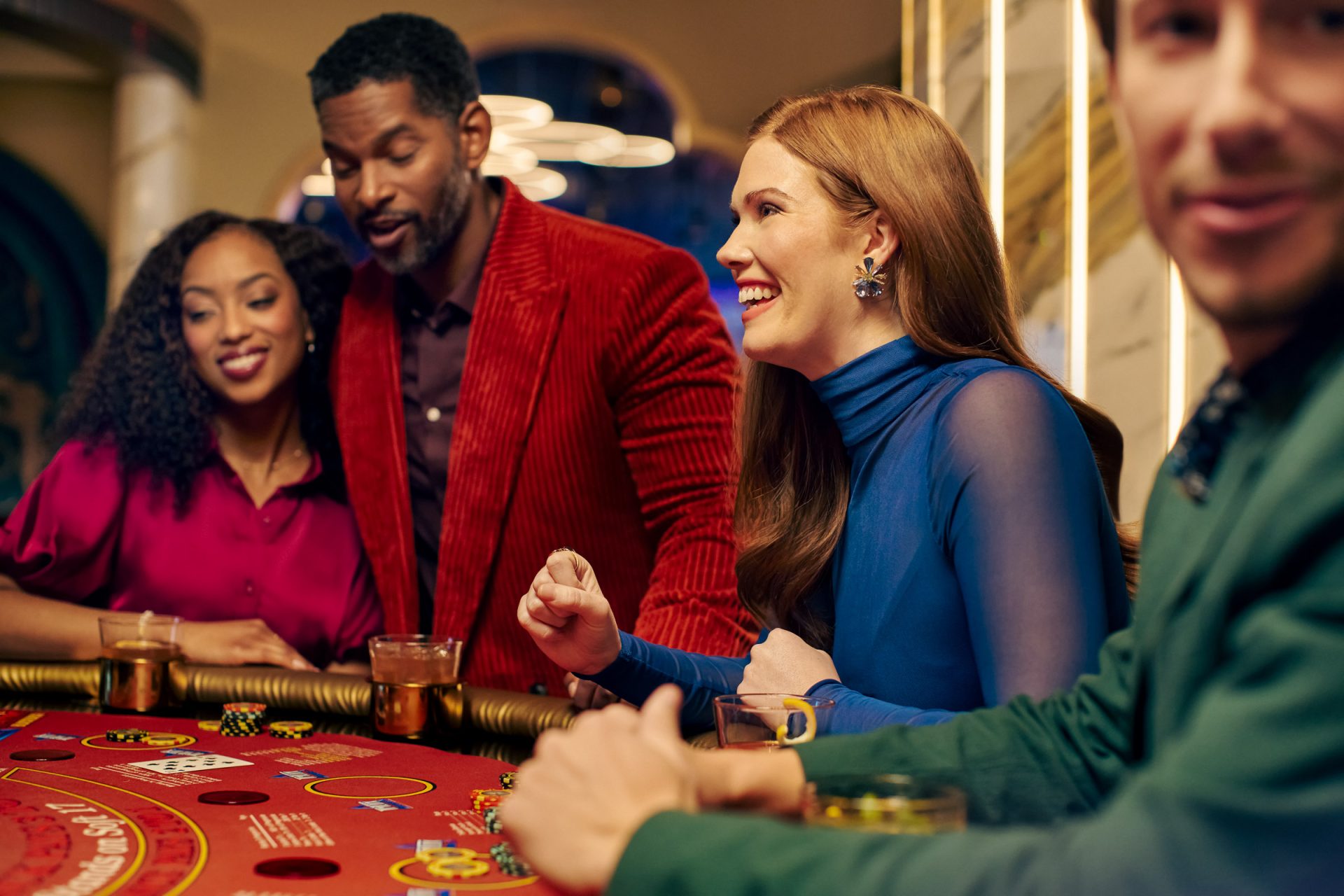
Casino as the Last Frontier: What Does a Person Who Bets “Everything” Before Going to Bed Feel Like?
The digital casino environment offers endless thrills, accessible 24/7 from anywhere on earth. For many players, the online gambling experience – especially at immersive platforms like Casombie casino – is a source of entertainment, excitement, and even social interaction. However, there’s a segment of gamblers whose experience is far more intense, personal, and emotionally charged. These players see the casino not simply as entertainment but as a final frontier, a place of ultimate risk-taking, particularly at night before sleep.
Imagine the mindset of a gambler who stakes nearly everything – financial resources, emotional reserves, even self-worth – on a final bet before going to bed. What motivates such high-stakes decisions? How does it feel to risk it all at the end of the day, knowing that the outcome can dramatically affect tomorrow?
This article dives deeply into the emotional and psychological world of players who see gambling as their final frontier before sleep, exploring why individuals might choose to risk everything on that last late-night bet, especially at casino.
Understanding the Nighttime Gambler: The Psychology of Risk Before Sleep
Gambling as a Ritualistic Closure
For many gamblers, placing bets late at night isn’t random; it’s a deeply symbolic and ritualistic act. It’s their personal way of bringing closure to a day, an attempt to end with a sense of control or even triumph. Betting everything at this point becomes an emotionally charged event, where the gambler symbolically confronts uncertainty head-on before resting.
Emotional Intensity and Nighttime Vulnerability
Psychologists have observed that people are particularly emotionally vulnerable at night. Exhaustion, isolation, and the absence of daily distractions amplify feelings. Gambling in this state heightens emotional stakes dramatically. Players feel emotions more intensely, making that final bet at casino not just about potential winnings, but about a profound, internal emotional confrontation.
Inside the Mind: Why Risk Everything?
Seeking Emotional Validation Through Gambling
Gamblers placing high-stakes bets late at night often seek emotional validation or affirmation. Winning represents success, competence, and emotional reward. Conversely, losing can feel devastating – yet paradoxically, even losses serve as emotional validation of internal fears or beliefs. Gambling thus becomes a psychological mirror, reflecting a gambler’s internal emotional state and self-perception.
The Desire for Dramatic Change
When gamblers risk everything before sleep, they’re typically driven by a deep desire for immediate, significant life change. They perceive gambling as a transformative event that can redefine their identity or circumstances overnight. The dream of waking up to a vastly improved situation – financially and emotionally – fuels the intense emotional investment in that last nighttime bet.
The Physical and Emotional Experience of High-Stakes Gambling at Night
Physiological Stress and Adrenaline Rush
Physiologically, high-stakes gambling dramatically elevates stress hormones like adrenaline and cortisol. Players experience heightened heart rate, sweaty palms, rapid breathing, and intense physical excitement or anxiety. This physiological reaction can feel exhilarating or overwhelming, depending on the individual’s emotional state and gambling outcome.
Emotional Rollercoaster: Anticipation and Anxiety
Emotionally, placing everything on a bet generates intense anticipation and anxiety. The gambler experiences conflicting emotions simultaneously – hope and fear, excitement and dread – creating an emotional rollercoaster. The outcome becomes profoundly significant, as it’s directly linked to their sense of personal value, self-esteem, or future well-being.
The Impact of the Final Bet Outcome
Winning: A Fleeting Sense of Triumph
When gamblers win a high-stakes bet, they experience an overwhelming emotional high. There’s immediate relief, validation, and exhilaration. This success feels deeply personal, temporarily confirming their identity as capable, fortunate, and victorious. However, these positive emotions are fleeting, often followed by intense pressure to repeat the success in future gambling sessions.
Losing: Emotional Devastation and Despair
Losing everything in a single nighttime bet can feel emotionally catastrophic. Players might experience profound despair, shame, guilt, and hopelessness. This negative outcome can severely impact emotional well-being, leading to insomnia, anxiety, depression, and self-destructive behaviors. The gambler’s identity and self-worth can become closely tied to this failure, intensifying emotional pain significantly.
Nighttime Gambling as Emotional Escape and Coping Mechanism
Escaping Daily Reality
For some gamblers, betting everything at night offers an escape from daily struggles, boredom, or emotional pain. Gambling temporarily distracts them from unresolved personal issues, relationship problems, financial difficulties, or emotional isolation. Platforms provide immersive, engaging environments where gamblers briefly feel disconnected from daily reality, providing emotional relief – even if short-lived.
Gambling as Emotional Coping Strategy
Ironically, while gambling can cause significant emotional distress, it also serves as a coping mechanism. Players who gamble late at night use the activity to manage difficult emotions like loneliness, sadness, or anxiety. Even losses – despite causing immediate emotional distress – often paradoxically reinforce this coping behavior, creating a challenging psychological cycle.
Social Isolation and the Solitary Gambler
The Loneliness of Late-Night Gambling
High-stakes nighttime gambling is typically solitary. Players often gamble alone, creating an environment of social isolation and emotional intensity. Without social support, emotional reactions – both positive and negative – are magnified, deepening psychological vulnerability.
The Need for Social Connection and Validation
Despite solitude, late-night gamblers frequently seek implicit social validation. Imagining positive social responses to potential wins (admiration, respect, improved status) significantly motivates gambling behavior. Losses conversely feel socially humiliating, even if not explicitly witnessed, exacerbating emotional distress and loneliness.
Responsible Gambling: Recognizing and Managing Nighttime Gambling Risks
Awareness of Emotional Triggers
Responsible gambling involves awareness of emotional triggers influencing gambling behaviors. Recognizing feelings of loneliness, anxiety, or desperation that encourage risky nighttime bets helps gamblers manage behaviors proactively, seeking healthier emotional outlets or professional support when necessary.
Practical Strategies for Responsible Gambling
Casino and similar responsible platforms offer practical gambling management strategies: setting financial limits, reality checks, or time management tools. Encouraging gamblers to use these tools reduces emotional vulnerability and prevents harmful gambling behaviors, supporting healthier emotional and financial outcomes.
The Role of Casinos in Supporting Responsible Nighttime Gambling
Responsible Gaming Measures at Casino
Casino actively promotes responsible gambling by offering features like self-exclusion, deposit limits, cool-off periods, and access to support resources. Transparent communication about gambling risks helps players recognize problematic behaviors, reducing emotional and financial risks associated with nighttime gambling.
Ethical Engagement and Player Support
Casino emphasizes ethical engagement, proactively supporting players experiencing gambling-related emotional distress. Responsive customer service, player education, and support resources significantly mitigate negative gambling consequences, promoting healthier gambling behaviors and emotional well-being.
Future Trends: Technology and Nighttime Gambling Management
AI for Gambling Behavior Analysis
Emerging technologies like artificial intelligence (AI) may soon proactively monitor gambling behaviors, identifying players exhibiting problematic nighttime betting patterns. Real-time AI-driven interventions could provide immediate player support, emotional management resources, or targeted gambling limit suggestions, significantly reducing gambling-related emotional harm.
Virtual Reality and Emotional Regulation
Virtual reality (VR) technology could revolutionize emotional management in gambling contexts. Immersive VR environments could offer tailored emotional regulation exercises, mindfulness activities, or realistic gambling simulations, helping gamblers practice emotional management, decision-making skills, and responsible gambling behaviors proactively.
Conclusion: Navigating the Final Frontier of Casino Gambling
Betting everything at night represents a deeply intense emotional frontier for gamblers. Understanding motivations, emotional experiences, and psychological dynamics associated with high-stakes nighttime gambling offers crucial insights for gamblers, casinos, and responsible gambling advocates alike.
Platforms play significant roles in supporting gamblers emotionally, providing practical resources, ethical engagement, and technological innovations that help manage gambling-related emotional vulnerabilities effectively. Ultimately, awareness, responsibility, emotional management strategies, and supportive resources empower gamblers to navigate gambling’s emotional frontier safely, ensuring gambling remains enjoyable, sustainable, and emotionally fulfilling over the long term.

Leave a Reply